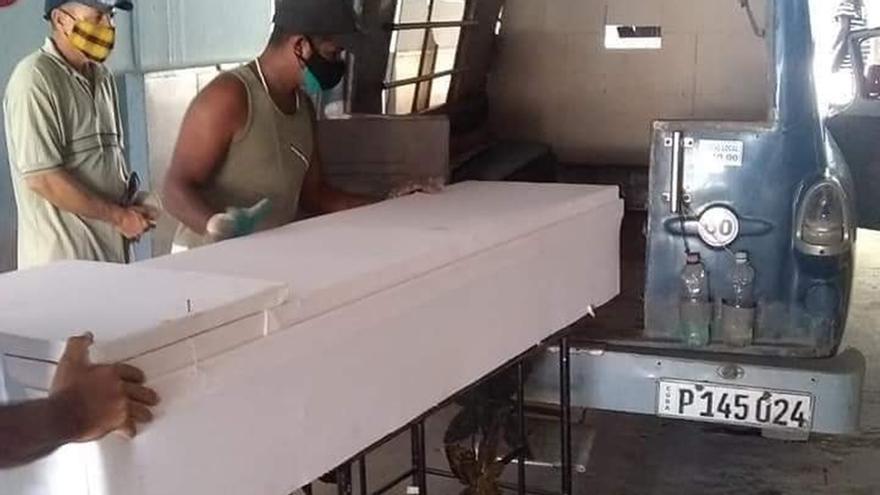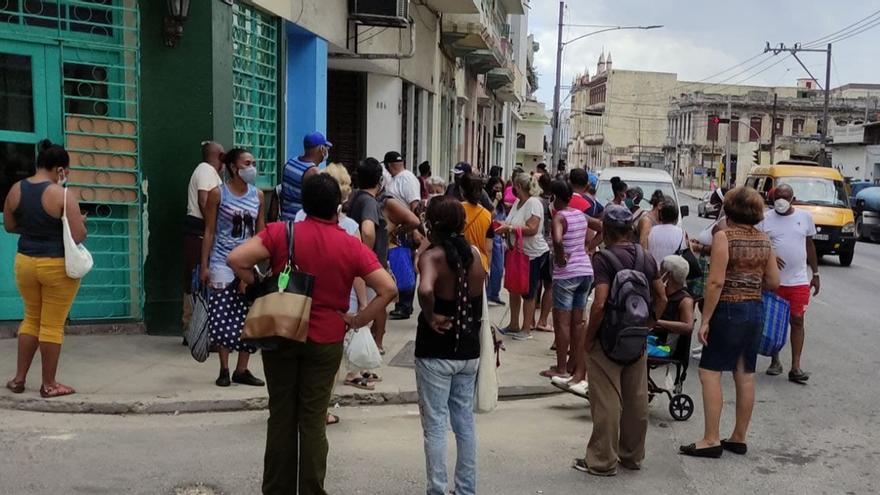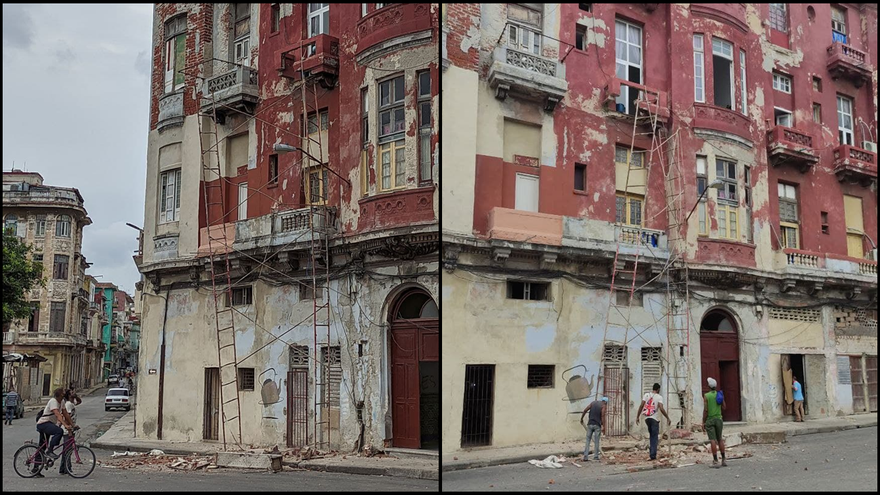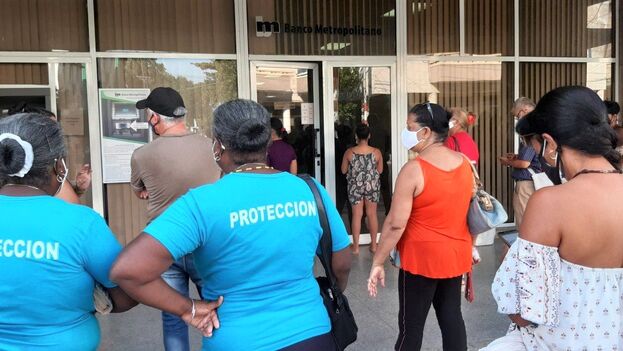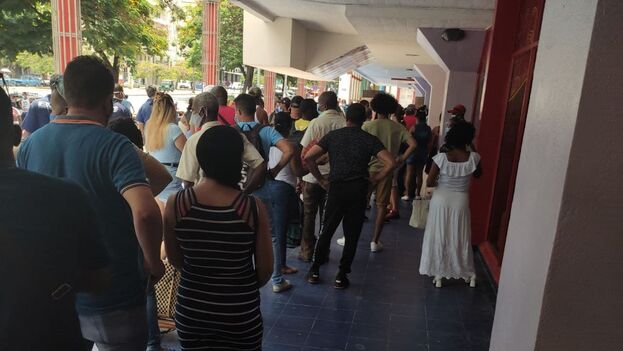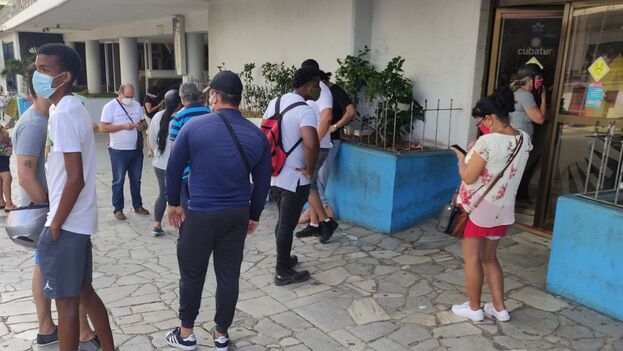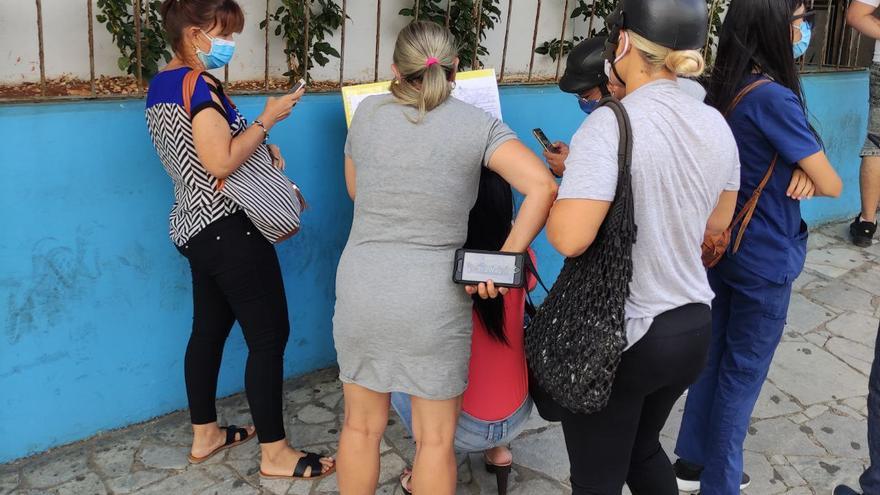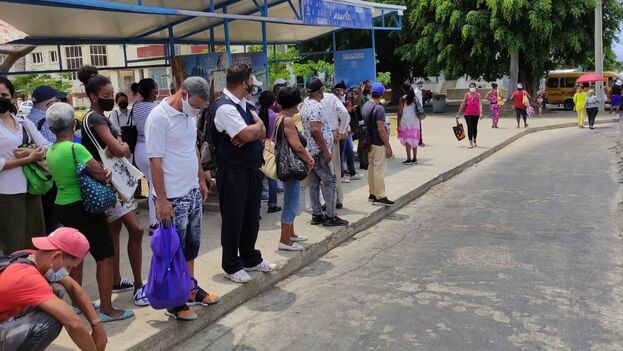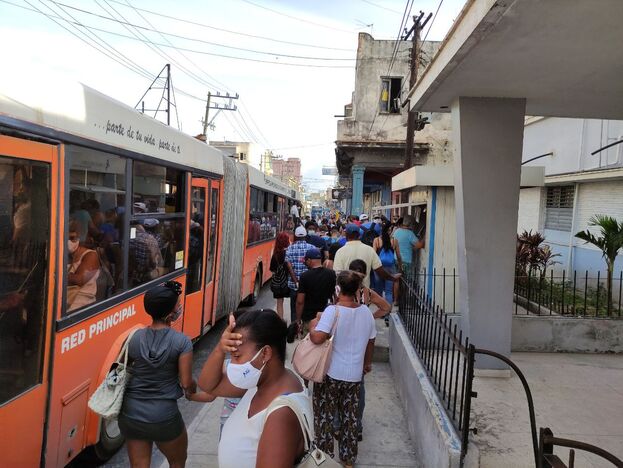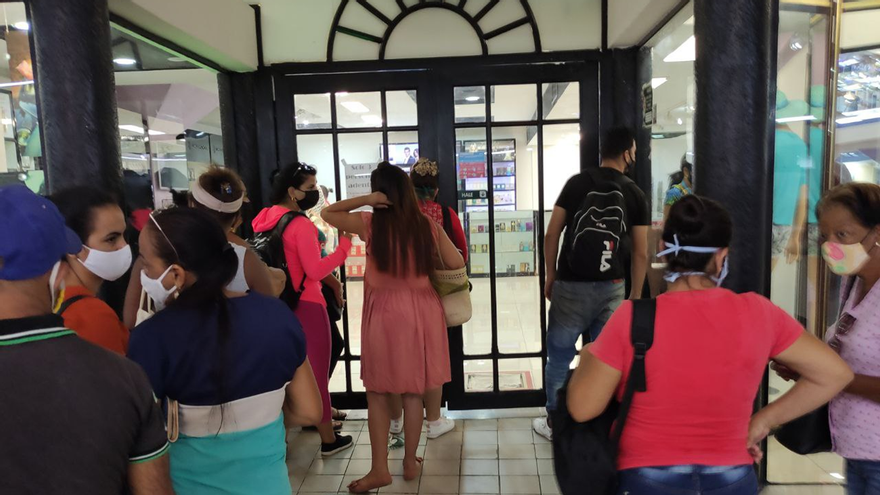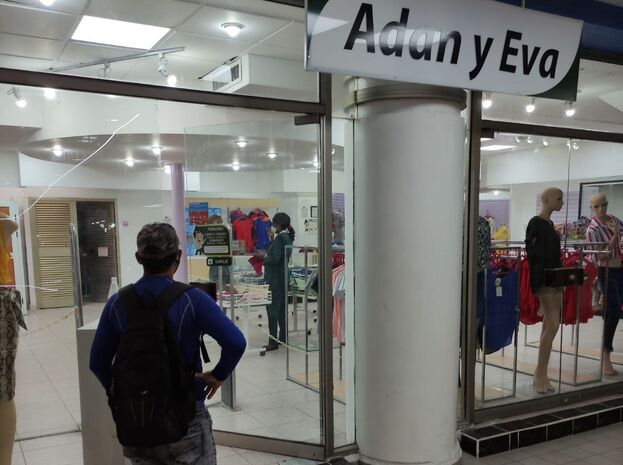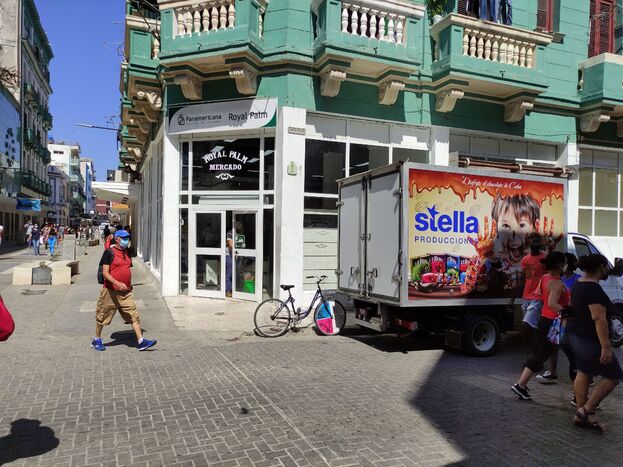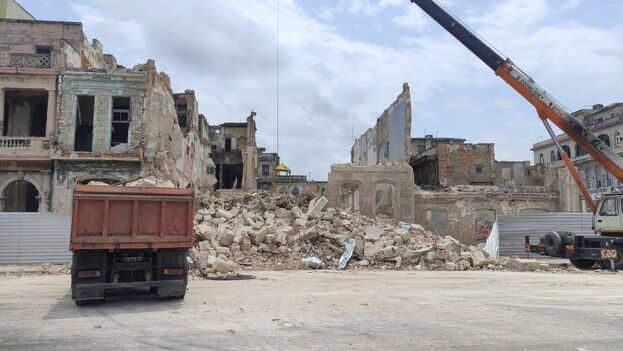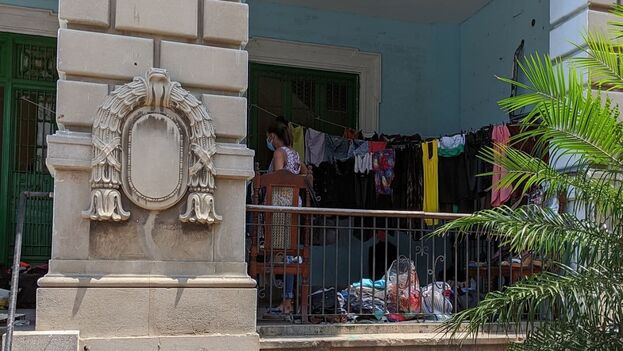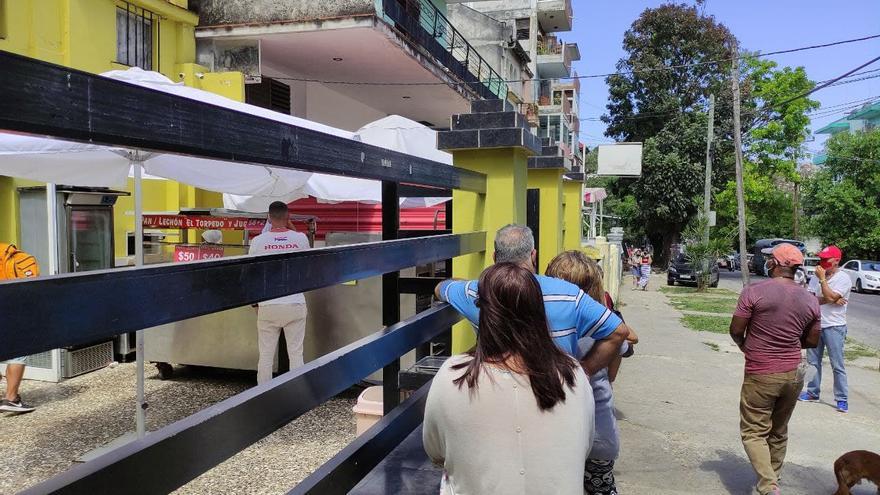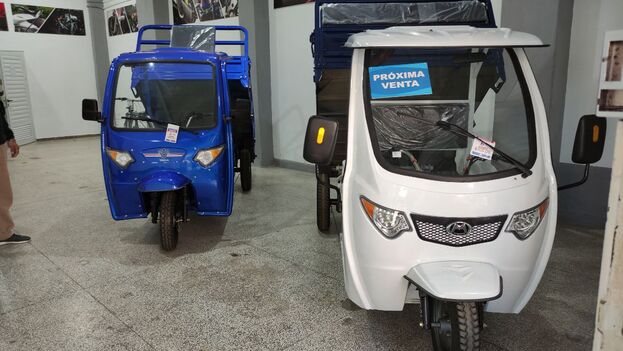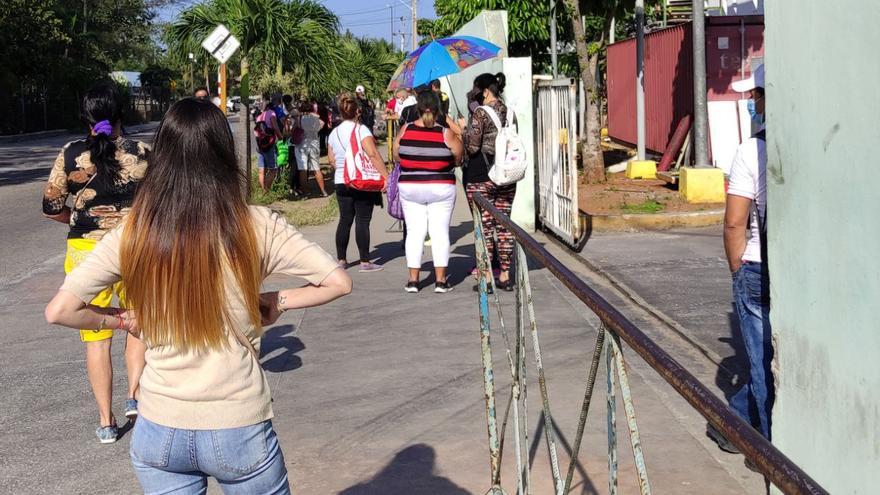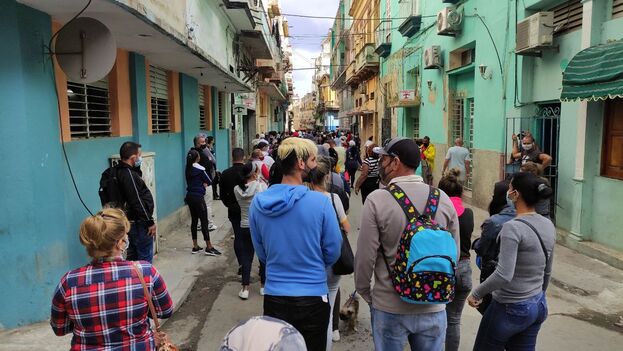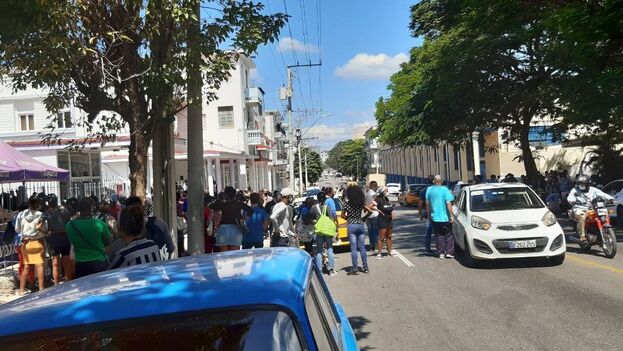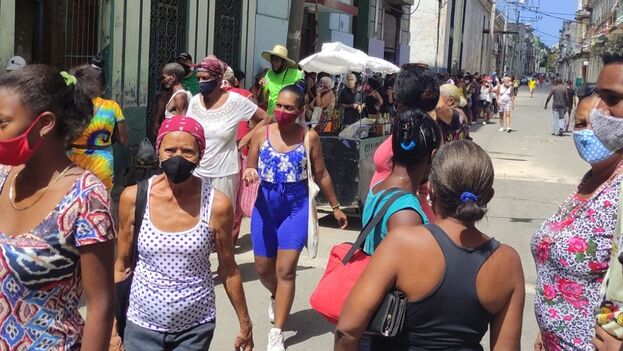
![]() 14ymedio, Juan Diego Rodriguez, Havana, 13 August 2021 — On Friday two competing events — the official celebration of what would have been Fidel Castro’s 95th birthday and a national strike called by the Cuban opposition — were overshadowed by something unexpected: the sudden return of scarce products to store shelves along with their usual by-product, endless lines.
14ymedio, Juan Diego Rodriguez, Havana, 13 August 2021 — On Friday two competing events — the official celebration of what would have been Fidel Castro’s 95th birthday and a national strike called by the Cuban opposition — were overshadowed by something unexpected: the sudden return of scarce products to store shelves along with their usual by-product, endless lines.
“The stores brought out a few things like cooked ham that I had not seen for a long time,” said an astonished Central Havana resident, who was at the Amistad market on Friday.
“They had hams like these at the start of the pandemic but I haven’t seen them in over a year and a half,” adds the woman, who invests several hours a day looking for food in Central Havana. “At the time they were also selling some very expensive ham salami along with other products but, as usual, no more than a day.”
“If you don’t want to wait in line, you have the option of going to continue reading
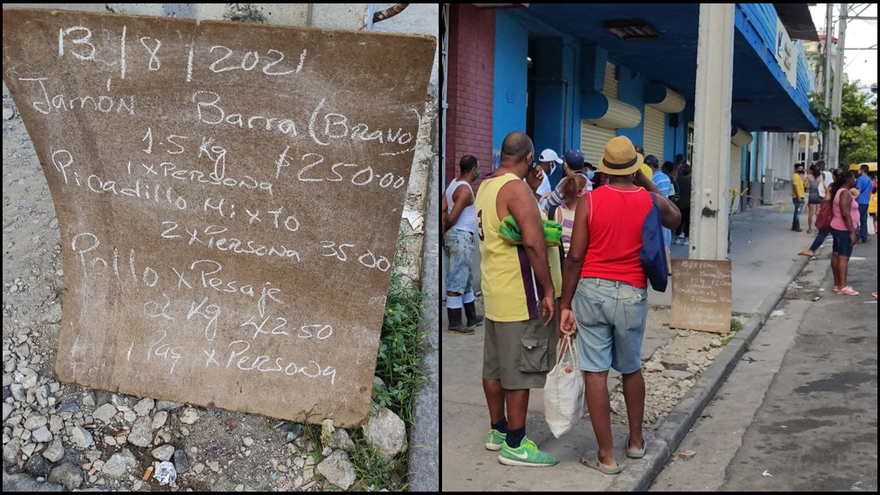
There is another long line of people — this time outside the Cupet Servicenter on the corner of Infanta and San Rafael streets — waiting to spend their pesos on H. Uppman and Populares filtered cigarillos. “They have several items for sale, which is very rare because usually there’s only one and that’s it,” says another customer waiting in a line that extends for four blocks.
For months H. Uppman and Populares products have only been available at foreign currency stores (known as MLC). The network of state-run stores and cafes that accept payment in Cuban pesos stopped carrying these and other brands, such as Criollos, Aromas and Titanes. in June. They had been available “exclusively” at neighborhood stores “upon presentation of the ration book.” Authorities announced, however, that sales had been suspended “due to problems with the availability of raw material.”
Among the items for sale at the Plaza Carlos III shopping mall on Friday were laundry detergent, cooking oil, canned fruit, ground meat, chicken and hot dogs. Many of those waiting in line held out hope of at least being able to buy a bottle of cologne.
“Cologne is never anywhere to be found,” says one Havana resident who decided to wait in line outside the capital’s largest retail establishment. The line to get in stretched all the way to Belascoaín Street, some seven blocks away.
“I have never experienced a line like the one I am seeing at Carlos III,” says a resident who lives very close to the plaza. Dozens of people sit in the shade on the curb, trying to avoid the sun and heat as they patiently wait in hopes of buying something.
Just a few streets away from Carlos II, homes in Central Havana have been transformed into informal storefronts. Some of items purchased on Friday at state stores are on display in people’s windows — packages of chicken, bottles of cooking oil and cigars — ready for resale to those who did not manage to get inside or who were not willing to spend hours waiting in the endless lines.
____________
COLLABORATE WITH OUR WORK: The 14ymedio team is committed to practicing serious journalism that reflects Cuba’s reality in all its depth. Thank you for joining us on this long journey. We invite you to continue supporting us by becoming a member of 14ymedio now. Together we can continue transforming journalism in Cuba.

